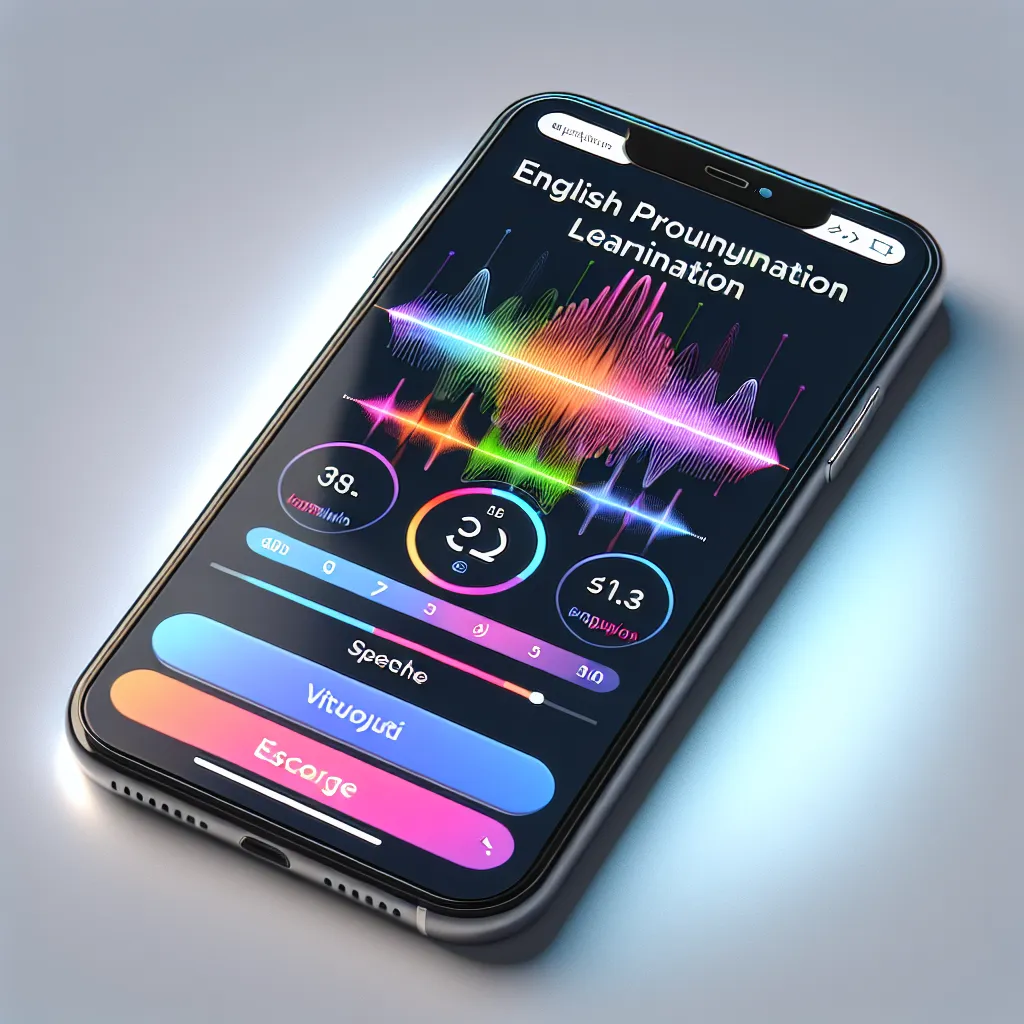Learning English pronunciation can be a challenging yet rewarding journey. Whether you’re a beginner or an advanced learner, mastering pronunciation is crucial for effective communication. In this article, we’ll explore various techniques and strategies to help you improve your English pronunciation through consistent practice.
Understanding the Importance of Pronunciation
Pronunciation is the foundation of clear communication in any language. In English, proper pronunciation can make a significant difference in how well you’re understood by native speakers and other English learners. It’s not just about saying words correctly; it’s about conveying meaning effectively and confidently.
The Role of Phonetics in English Pronunciation
Phonetics is the study of speech sounds. Understanding English phonetics is crucial for mastering pronunciation. The International Phonetic Alphabet (IPA) is a valuable tool that represents the sounds of spoken language. Familiarizing yourself with IPA symbols can greatly enhance your ability to pronounce English words correctly.
 English Phonetics Chart
English Phonetics Chart
Common Pronunciation Challenges for English Learners
Different language backgrounds can lead to various pronunciation challenges. For example:
- Spanish speakers often struggle with the ‘th’ sound in words like “think” or “this”
- Japanese speakers may find it difficult to distinguish between ‘l’ and ‘r’ sounds
- Arabic speakers might have trouble with the ‘p’ sound, which doesn’t exist in Arabic
Identifying your specific challenges is the first step towards improvement.
Effective Methods for Practicing English Pronunciation
Listen and Repeat Technique
One of the most fundamental methods for improving pronunciation is the listen and repeat technique. Here’s how to practice:
- Choose audio materials from reliable sources like podcasts, audiobooks, or language learning apps.
- Listen carefully to native speakers’ pronunciation.
- Pause after each sentence or phrase.
- Repeat what you’ve heard, mimicking the speaker’s intonation and rhythm.
- Record yourself and compare it with the original.
Shadowing Method
Shadowing is an advanced form of the listen and repeat technique:
- Play an audio recording at a comfortable speed.
- As you listen, repeat the words immediately after you hear them, trying to match the speaker’s pace and intonation.
- Gradually increase the speed as you become more comfortable.
This method helps you internalize the natural rhythm and flow of English speech.
Minimal Pair Practice
Minimal pairs are words that differ by only one sound. Practicing with minimal pairs can help you distinguish and produce similar sounds more accurately. For example:
- “ship” vs. “sheep”
- “bat” vs. “bad”
- “thin” vs. “tin”
Create lists of minimal pairs that focus on sounds you find challenging and practice them regularly.
Utilizing Technology for Pronunciation Practice
Speech Recognition Software
Modern speech recognition technology can be a valuable tool for pronunciation practice. Apps like Google’s Speech-to-Text or language learning platforms with speech recognition features can provide instant feedback on your pronunciation.
Pronunciation Apps
There are numerous apps designed specifically for pronunciation practice. Some popular options include:
- ELSA Speak
- Speechling
- Sounds: Pronunciation App
These apps often use AI to analyze your pronunciation and provide personalized feedback.
 English Pronunciation App Interface
English Pronunciation App Interface
The Power of Consistent Practice
Consistency is key when it comes to improving pronunciation. Here are some tips for maintaining a regular practice routine:
- Set aside dedicated time each day for pronunciation practice.
- Create a diverse practice plan that includes various methods and exercises.
- Track your progress by recording yourself periodically and comparing your recordings over time.
- Join language exchange groups or find a conversation partner to practice with regularly.
Common Pronunciation Errors and How to Avoid Them
Stress and Intonation Mistakes
English is a stress-timed language, meaning that stressed syllables in a sentence occur at regular intervals. Many learners struggle with this aspect of pronunciation. To improve:
- Practice word stress patterns (e.g., PHO-to-graph vs. pho-TO-gra-pher)
- Pay attention to sentence stress and intonation in natural speech
- Use resources like stress pattern dictionaries to learn correct stress for individual words
Silent Letters and Irregular Pronunciations
English has many words with silent letters or irregular pronunciations. Some examples include:
- “knight” (silent ‘k’)
- “island” (silent ‘s’)
- “colonel” (pronounced as “kernel”)
Create a list of commonly mispronounced words and practice them regularly.
The Phonemic Chart and Commonly Mispronounced Words
Understanding the phonemic chart can significantly improve your pronunciation skills. Here’s a simplified version of the English phonemic chart:
[Insert simplified phonemic chart here]
Here are 10 commonly mispronounced English words related to everyday conversation:
- “Clothes” – often mispronounced as “close”
- “Comfortable” – commonly pronounced with emphasis on “fort”
- “Vegetables” – frequently pronounced without the middle ‘ta’ sound
- “Recipe” – often mispronounced with emphasis on the first syllable
- “Subtle” – the ‘b’ is silent
- “Sixth” – challenging due to the consecutive ‘s’ and ‘th’ sounds
- “Mischievous” – commonly mispronounced with an extra syllable
- “Pronunciation” – ironically, often mispronounced as “pronounciation”
- “Espresso” – frequently mispronounced as “expresso”
- “Etc.” – often incorrectly pronounced as “ek cetera”
Practice these words regularly, focusing on their correct pronunciation and stress patterns.
Conclusion
Mastering English pronunciation through constant practice requires dedication, patience, and the right techniques. By incorporating a variety of methods, utilizing technology, and maintaining consistency in your practice, you can significantly improve your pronunciation skills. Remember, the goal is not to eliminate your accent entirely, but to speak clearly and confidently in English.
For more tips on improving your English skills, check out our articles on strategies for mastering English in project-based learning and tips to improve English conversation skills.
Keep practicing, stay motivated, and enjoy your journey towards mastering English pronunciation!




